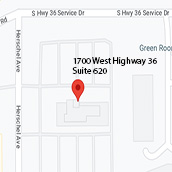Acquired and Traumatic Brain Injuries
The definition of a brain injury is a disruption to the normal function of its tissues. There are many potential causes of damage due to an injury to the brain. Brain injuries can vary widely in severity and the damage can be widespread or localized to a small area. Because each part of the brain performs a very specific function, the symptoms can vary widely depending on the affected structures within the neural tissue.
Acquired and Traumatic Brain Injuries
Acquired brain injuries are those that result because of a medical condition. Common causes of acquired brain injury include lack of oxygen (hypoxia or anoxia), and stroke, which is a lack of blood flow to the brain.
Traumatic brain injuries result from a force or impact to the brain that is strong enough to cause damage. Sometimes the force is sufficient enough for a foreign object to penetrate the brain through the skull, but penetration injuries represent only one type of TBI.
Traumatic brain injuries can occur in motor vehicle accidents, from explosions in war zones, and from falls. A skull fracture can contribute to a traumatic brain injury, which is called an “open injury.” However, sometimes a TBI occurs in the absence of a skull fracture, in which case the injury is closed.
Levels of Brain Injuries
The level of a brain injury refers to its seriousness. Brain injuries can range from mild to severe.
Severe TBI can put a patient at risk for developing degenerative brain disorders, such as Parkinson’s and Alzheimer’s. It can also cause changes in language, emotion, thinking, or sensation that can have long-term effects. A severe TBI requires extensive rehabilitation, and even then, return to pre-injury condition is extremely unlikely.
- Severe TBI: A severe TBI often results from catastrophic head trauma. This often, though not always, involves a severe skull fracture, but severe brain injuries can be closed as well as open. Mild TBI repeated over time can have a cumulative effect and also result in a severe brain injury.
- Moderate TBI: Moderate TBI typically results from a blow to the head without penetration of a foreign object. They can also result from severe rotational force or violent shaking. Such injuries can result in disabling impairments that last a lifetime, while other patients suffer no ill effects in the long term.
- Short Term TBI: Signs of TBI that occur in the short term include behavioral, cognitive, and physical impairments that last for months or more. After a moderate TBI, the patient may lose consciousness for a few minutes to a few hours. The patient may also demonstrate confusion for a few days up to several weeks.
If you or a loved one suffered a traumatic brain injury in an accident, contact a brain injury attorney.






